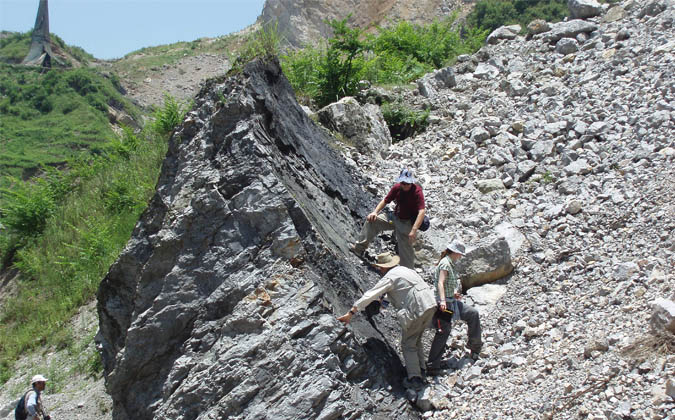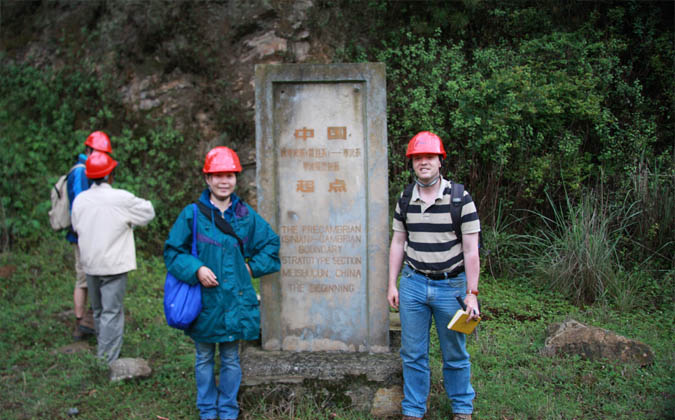Precambrian Research
The Precambrian is the informal name for the first 90% of Earth history during which life began its incredibly long journey towards biological complexity.
This journey culminated in the appearance and diversification of animals between about 750 and 540 million years ago. Sedimentary rocks become increasingly scarce the further back in time one looks. For this reason, Precambrian studies are multidisciplinary by necessity, piecing together clues from a range of fields: geochemistry, palaeobiology, biochemistry, sedimentology, genetics and a range of earth system models (atmospheric, ocean circulation, climate and biogeochemical).
Our research group primarily uses the chemical, mineral and isotopic composition of sedimentary rocks to reconstruct earth system evolution during the two billion year interval from the end of the Archaean Eon (about 2500 million years ago) to the beginning of the Phanerozoic Eon (about 540 million years ago). During this Proterozoic Eon, extraordinary perturbations occurred to our planet’s surface environment. Some disturbances were extreme but transient, such as the ‘Snowball Earth’ intervals of global glaciation. Others caused irreversible changes that shaped the modern earth system, such as the ‘Great Oxidation Event’ and the ‘Neoproterozoic Oxygenation Event’ without which we would not be here today.
Group members
Academic staff
UCL Collaborators
General Enquiries:
Prof Graham Shields
g.shields@ucl.ac.uk
+44 (0)20 3108 6364
 Close
Close



